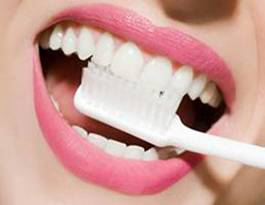Tooth Loss linked to Cognitive Impairment, Dementia
 It is commonly assumed that losing one or more teeth is inevitable once we become a senior. Baby teeth fall out on their own but adult permanent teeth do not die a natural death. If tooth loss isn’t an inevitable part of aging or do not die naturally, then what causes them to fall out?
It is commonly assumed that losing one or more teeth is inevitable once we become a senior. Baby teeth fall out on their own but adult permanent teeth do not die a natural death. If tooth loss isn’t an inevitable part of aging or do not die naturally, then what causes them to fall out?
It is widely believed that poor oral hygiene and inadequate dental care as well as disease or trauma are usually the culprits for loss of adult teeth.
Now a new study has suggested that tooth loss can be an indicator of cognitive decline and dementia. In the study, investigators found that adult people having fewer number of teeth were more at risk of developing cognitive impairment and dementia.
According to the investigators, people are often ignorant about oral hygiene and dental care and don’t take fall of teeth seriously as well. But loss of teeth, they affirmed, is linked to increased risk for cognitive deterioration and dementia in adults and taking good care of oral cavity can reduce this risk by more than a quarter.
For the study, Dr Daiane Cerutti-Kopplin, of the Federal University of Rio Grande do Sul in Brazil, and her team pooled data from ten previous study reports and after a systematic review of those studies found mental impairment and dementia increases with tooth loss.
The analysis showed that individuals who had less than 20 teeth were at a 26 percent increased risk for developing cognitive decline, that often leads to Alzheimer’s disease, and at 22 percent elevated risk for full-blown dementia than those with greater than or equal to 20 teeth.
The reason behind the increase or decrease of cognitive impairment and its pathologic correlates, including dementia and Alzheimer’s disease, could be attributed to chewing which increases blood flow to the brain, hence improving memory.
Dr Cerutti-Kopplin said previous studies have already showed an association between oral health and cognitive function and her findings emphasize on the importance of regular brushing and flossing.
This study suggests that oral health strategies aimed to preserve teeth may be important in reducing risk of systemic disease, researchers said.
Dr Cerutti-Kopplin said: “In humans, recent neuroimaging studies showed brain regions linked to the memory and learning process are activated during chewing activities. In fact, these studies revealed masticatory activities increase cerebral blood flow and cognitive task performance.
“Patients with mild cognitive impairment, dementia, and Alzheimer’s disease are more likely to have poorer oral hygiene, more periodontal disease, and tooth loss.”
The team, however, assert an extensive insight into the nature and extent of oral hygiene’s link to reduced cognitive function in adults is of utmost importance since it could aid in developing preventive interventions for cognitive performance.
“In conclusion, this systematic review offers evidence that tooth loss increases the risk of cognitive impairment and dementia. There is a need for further research to identify the biological basis for this association,” Dr Cerutti-Kopplin concluded.
The study was published in the journal JDR Clinical and Translational Research.









